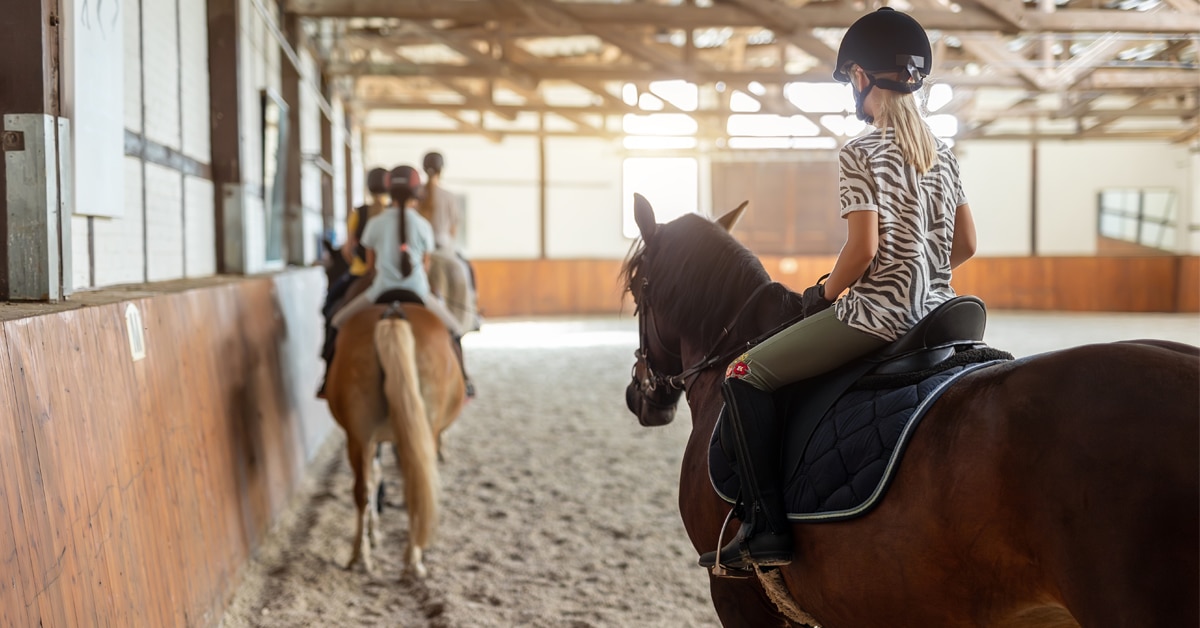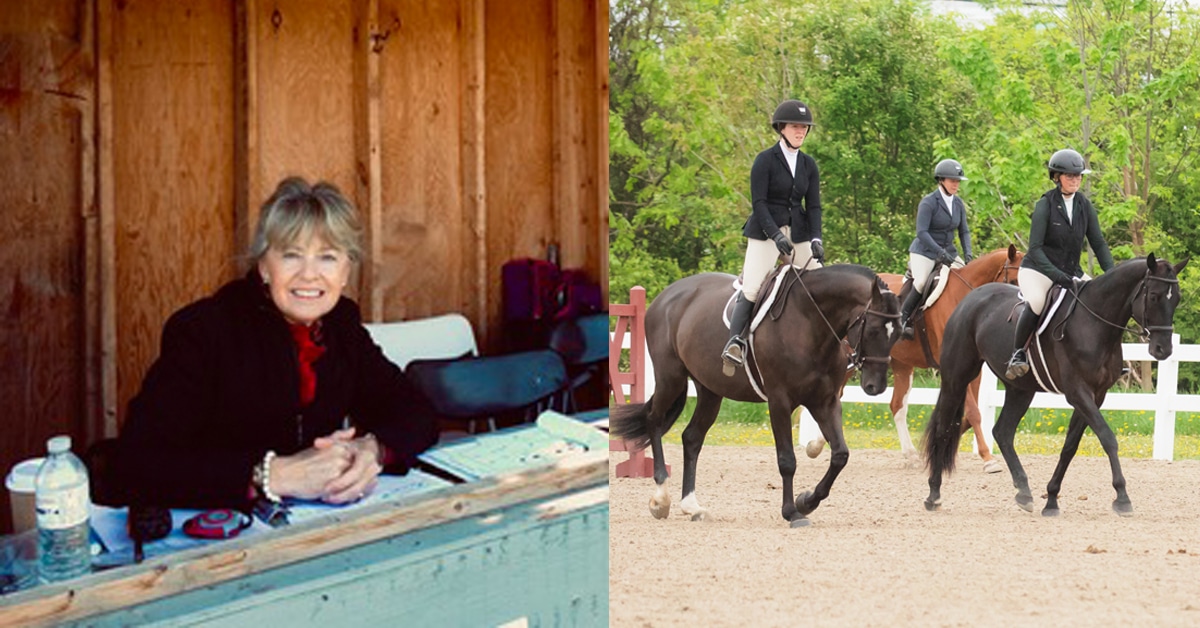In many cases, leasing a horse instead of doing a sales transaction makes sense for both parties. So it’s no surprise that leasing continues to be a popular option for many horse owners. For example, an owner may not be interested in selling the horse, but may wish some return on investment. Sometimes, there’s a hope that the lessee (the person leasing the horse) will decide at some point to buy the horse. If the owner wants the horse shown to raise its visibility for a possible sale, without spending his own money, a lease can be a good way to accomplish that.
There are also a number of advantages for the lessee. For example, the lessee might have a specific purpose for the horse, such as a year-end final, and doesn’t wish to invest the purchase price of the horse at the time. Or, the lessee may want to try the horse for a period of time before deciding if he wants to buy.
Also, sometimes the lessee might not be in a position to pay the full amount of the sales price of the horse, but wishes to have the option to purchase the horse sometime during the term of the lease.
The drafting of a lease is much more involved than creating the bill of sale of a horse, because under a lease there is a continuing relationship between the lessor and lessee to the end of the lease term.
With that in mind, we always recommend that the specific terms of a lease be put in writing and signed by both parties. This protects the interests of both the lessor and lessee, who each have specific goals in mind. The lessor wants the horse returned healthy, sound and suitable for continued use. And the lessee wants a simple document that doesn’t unreasonably restrict his or her use of the horse.
If you go to the internet as you get started with this process, you will find multiple websites that provide draft documents for a lease. But the problem with such documents is this: A lease for a horse needs to be crafted to fulfill its intended purpose of protecting both parties in this specific agreement.
To provide the proper protections, and to make the process easier, retain an attorney who is familiar with leasing. An attorney can make the proper revisions at the outset – details that may prevent a dispute from landing you in court if things go wrong.
Here are some tips on a few terms that should be included:
– The lease should list the names of the parties and provide as much information about the horse as possible.
– It should provide for the lease term and for mechanisms for early termination. It should also describe the obligations and rights of the parties during the terms of the lease.
– The rental amount, timing of payments and any appropriate late fees should be spelled out. There also may be the need for a refundable deposit, similar to what you might see in a real estate lease.
– For the lessor, it’s important to have a provision that spells out the number of days a week the horse can be jumped, while also defining the type of use allowed for the horse.
– To provide for the safety of the horse, the lessor should approve a specific trainer to be used by the lessee, and it should be stipulated that the trainer cannot be changed without the lessor’s written consent. Also, the lease should detail the care and maintenance expected for the horse, and the obligations of both parties related to that.
– There should be certain representations made by both parties, but the lessor may wish to limit this to the fact that the lessor is the owner of the horse, and that the lessor is authorized to enter into an agreement. A lessor should be cautious about making representations as to the suitability of the horse for the intended use. (So for the lessee, it’s important to do the proper due diligence beforehand, to have confidence that the horse is indeed suited for that use.)
– The lease should specify the insurance coverage tied to the lease. The insurance should cover the horse (for such possibilities as death, major medical and loss of use), as well as providing property liability insurance and naming the lessor as an additional insured.
– There should be a provision about defaults and remedies, and how damages may be calculated. It should also include how attorney’s fees and costs might be handled, and may contain a pre-litigation mediation and arbitration requirement. The lessor should also stipulate a surrender of possession of the horse either at the end of the lease term, or sooner if the lease is terminated as the result of a default.
– The lease should establish the state law that will be used to interpret the lease, as well as where the parties would litigate any disputes involved.
– The lease should provide that the lessee notify the lessor of all shows where the horse is competing, while also providing the opportunity for the lessor to regularly inspect the horse.
– There should be a provision specifically stating that the lease constitutes the entire agreement, and that this is not for the sale of the horse – it is strictly a lease.
– The lease should be recorded with the United States Equestrian Federation if the horse is being leased in the U.S. If there is an option for a purchase, it should be clear that the option can only be exercised provided there has been no uncured default of the lease prior to the exercise of the option.
While much of this may seem fairly simple, important terms are sometimes neglected in the rush to reach an agreement. A little time spent tailoring the lease for its intended purpose may save a much larger expense if a dispute arises.
Attorney Robin Trupp is a partner in the Tampa and West Palm Beach offices of Greenspoon Marder. He’s had an interest and love of the sport since his own days as a rider. He can be reached at robin.trupp@gmlaw.com
The Latest










